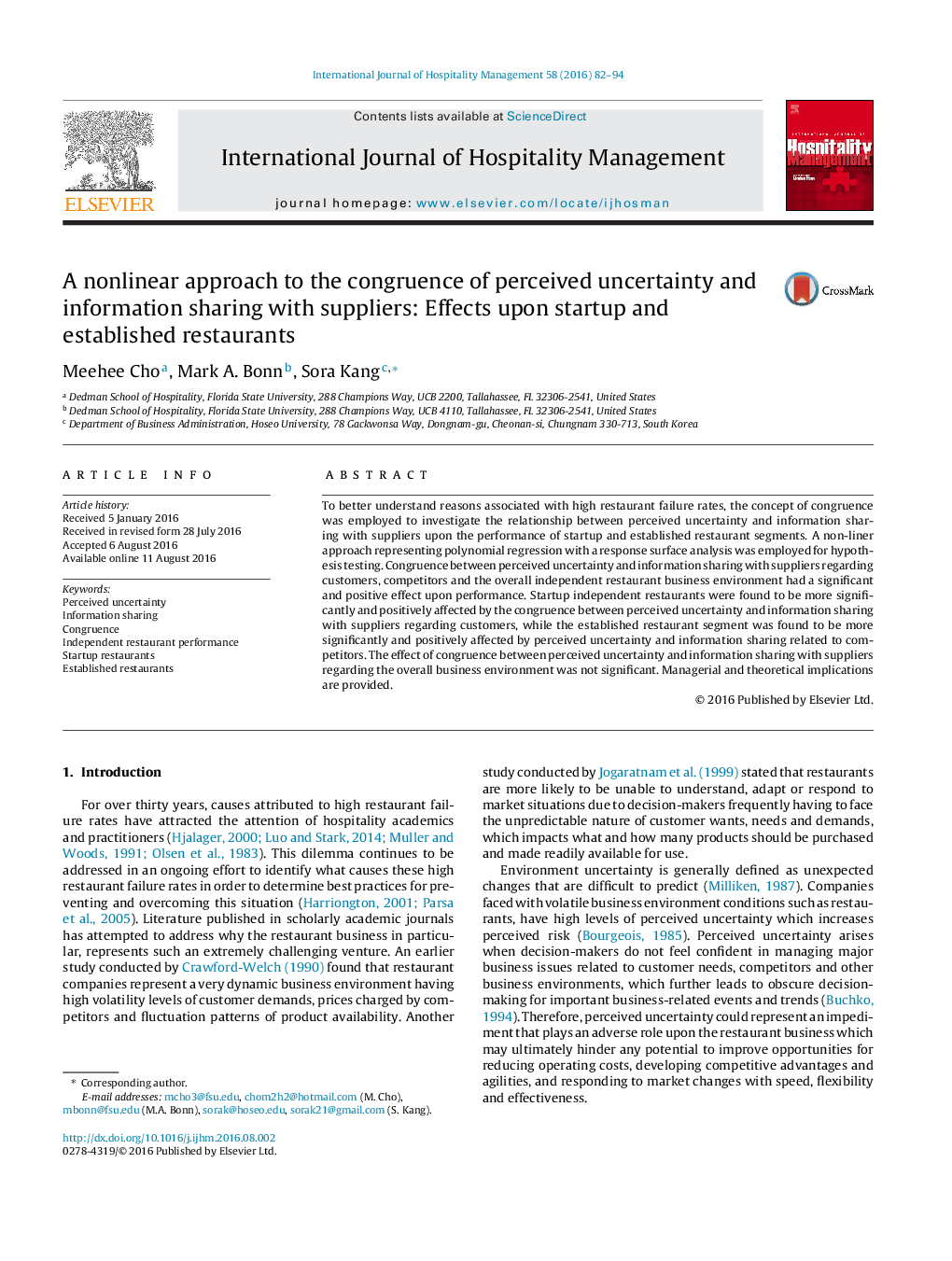| Article ID | Journal | Published Year | Pages | File Type |
|---|---|---|---|---|
| 1009143 | International Journal of Hospitality Management | 2016 | 13 Pages |
To better understand reasons associated with high restaurant failure rates, the concept of congruence was employed to investigate the relationship between perceived uncertainty and information sharing with suppliers upon the performance of startup and established restaurant segments. A non-liner approach representing polynomial regression with a response surface analysis was employed for hypothesis testing. Congruence between perceived uncertainty and information sharing with suppliers regarding customers, competitors and the overall independent restaurant business environment had a significant and positive effect upon performance. Startup independent restaurants were found to be more significantly and positively affected by the congruence between perceived uncertainty and information sharing with suppliers regarding customers, while the established restaurant segment was found to be more significantly and positively affected by perceived uncertainty and information sharing related to competitors. The effect of congruence between perceived uncertainty and information sharing with suppliers regarding the overall business environment was not significant. Managerial and theoretical implications are provided.
